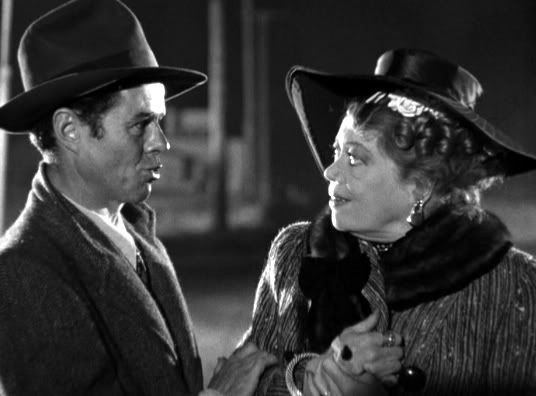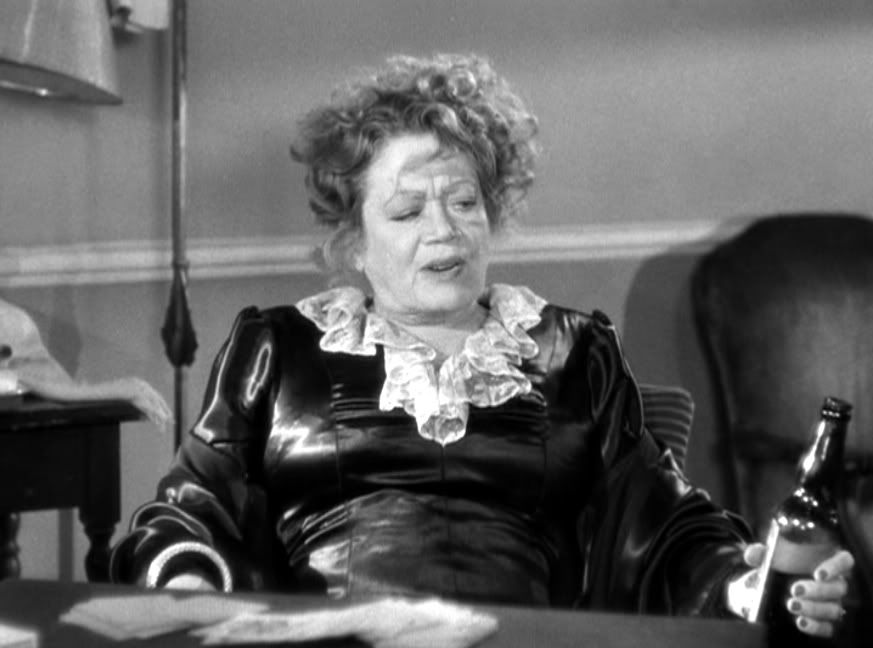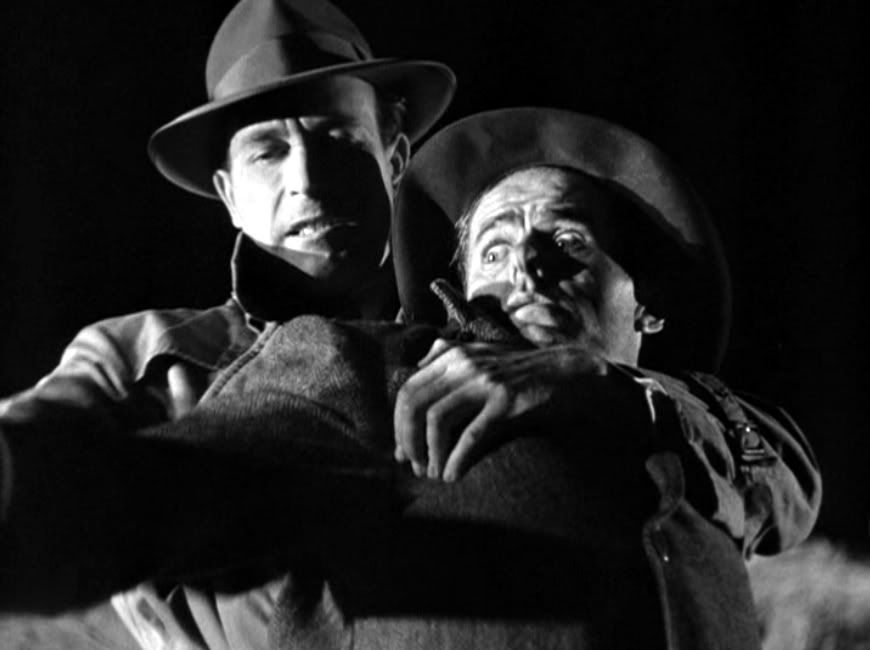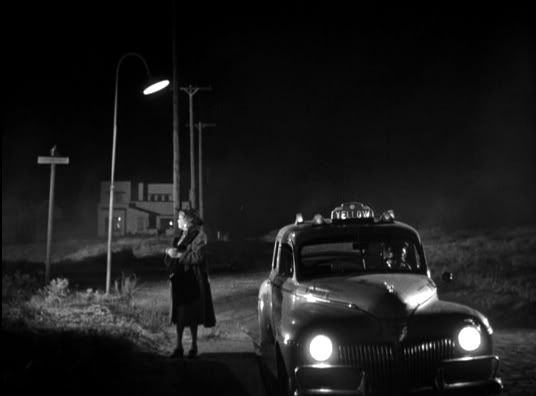
This is a contribution to the For Love of Film (Noir) blogathon hosted by Ferdy on Film and Self-Styled Siren. Now in its second year, the blogathon aims to raise money for the Film Noir Foundation, which preserves the original nitrate prints of these classic films. Please consider donating to them if you can, as they do vital work.
A lot of ink has been spilled already about Claire Trevor's conniving psuedo-femme fatale, her masochistic obsession with psychopathic killer Lawrence Tierney and the class warfare that pervades Robert Wise's fantastic "Born to Kill." But more than the two scorching leads, I've always been struck by two noir regulars, Elisha Cook Jr. (Harry Jones in "The Big Sleep") and Esther Howard ("Detour," "Murder, My Sweet") in character roles.
Several classic noirs have touched upon the lengths people will go for friendship (Thelma Ritter's fantastic scene in Simon Fuller's "Pickup on South Street" springs to mind), but few have done it so effectively as "Born to Kill." Neither Cook nor Howard stray from their usual types, the mousy guy out of his depth and the brassy lush. But the script gives them excellent material to work with and their presence adds a depth that the plot may not have had otherwise.

As Mrs. Kraft, Howard is a hoot. She lives vicariously through her young, promiscuous landlord Laury Palmer. It's not clear how the two became such fast friends, but they're cut from the same cloth. You can imagine that Laury would eventually become Mrs. Kraft had she not met the business end of Tierney's knife.
But their relationship is about more than two kindred spirits coming together at different points on the same sad continuum of alcoholism. Even before Laury's murder, Kraft seems to have maternal instincts toward the younger woman, suggesting she "get some meat on her bones." Afterward, she hires an attorney and jaunts out to San Francisco to track down Laury's killer.
In one of my favorite scenes in the film, in which Kraft first meets Cook's Marty 'Mart' Waterman, Howard lays all her cards on the table. After sizing Waterman up for the loser he is ("I'm a bad boy," Cook intones. To this, Howard lets out a knowing cackle.), she tells all there is to know about where Kraft is coming from.
"I've reached the tail end of my life and all I had was Laury—Laury and the bottle. Well, there's nothing I can do for the bottle, but I'm sure not going to let Laury down."
On the page, it reads like lazy screenwriting, but it works wonderfully on screen. Interestingly enough, the most outwardly repulsive character is the only one with pure motives in the entire film. She has the self-awareness that comes with age. At the same time, she lacks the will to change herself, so she's looking for redemption by finding Laury's killer.

Cook's Mart is a thoroughly ambiguous character. The only thing the film reveals about his connection to Tierney's Sam Wild is that they'd lived together for five years and were roommates in Reno. Based on the amount of tail that Wild gets, wants to get, or induces into marriage, it's clear that the two weren't together in the Biblical sense. So, were they in prison? Were they running a con together? And what keeps them together now that Wild has married into wealth?
The film doesn't tell much of anything about their past, but the balance of power in the relationship was always with Wild. There's a strange dynamic here, in which Wild goes wild and Mart tries to talk him down and clean up the wreckage. He tries his damnedest to throw Kraft off the trail, and then unsuccessfully co-opts Wild's cold methods. Mart's willing to do just about anything for his friend.
Just like Mrs. Kraft, that dedication places Mart in harm's way. Despite being Wild's only true friend, Mart ends up in the psychopath's crosshairs. "You're crazy, Sam," Mart says, but it's no revelation. Mart knew it all along and still stood by his friend.


No comments:
Post a Comment